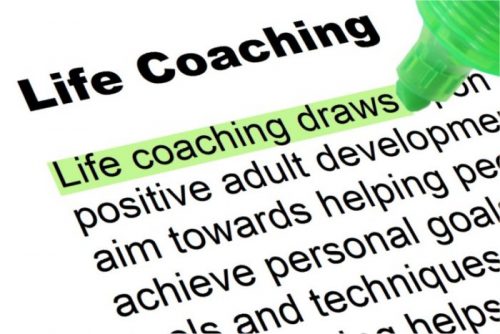We always need counseling because it’s somehow difficult to understand how our mind works. It contains our great past, our current struggles, and our goals for the future to live our best life.

Source: pxhere.com
Achieving Our Goals
Your positive mind, the things you believe in, and what you think of yourself are the things that serve your reality. Our life consists of individual pages that we write about ourselves.
“Happiness feels good to us. It feels good in the same way that … delicious food, a cozy warm fire, or a hug from the one you love [feel good].” However, genuine positivity and the pressure to be positive all the time are two different things. And psychologists agree that in our society, that pressure is mounting,” says Matthew Hefferon, PsyD. Before making a decision that can impact lives, take a deep breath and think it through for a minimum of 20 seconds.

Source: flickr.com
Life’s Goal Works
Instilling a goal in your mind is easy. However, working towards existential personal goals is going to be a difficult healing journey. There will be a lot of challenges you need to overcome along the way. Therefore, you need to start looking at the tactical working elements in your mind that could achieve your heart’s desired result. The first step is building a hard mission and vision to access freedom and success. You need to discover your range of strengths and weaknesses. Find your purpose. Look for a sign, go for a walk, and listen to your heart. Is this purpose to raise a child, build healthy relationships or spread hope to the people of the world?

Source: thebluediamondgallery.com
Takeaway
Always mind your own business to avoid needing support through difficult times, struggling with depression, addiction, and family and relationship concerns. Stress in all forms makes you require mental health services, marriage counseling services, couples counseling, anxiety treatment resources, and other emergency services to keep you in the right ways for your unique needs.
There’s no greater feeling of satisfaction than when you may know that your desires mean something to you and you can sleep without relationship issues or needing to become one of the clients at a community life counseling center where a team of counselors can provide counseling support to a person or families. They aim on helping people like you.
Thus, always remember that you don’t need to continually check on other individuals’ life success because it doesn’t matter. You have to be glad and focus on your peace, freedom, and little achievements.
Visit a life counseling center to meet with a professional with training on dealing with a client now!
Frequently Asked Questions
What Does A Life Counselor Do?
A life coach assists individuals with many aspects of their lives by offering guidance and assistance. They collaborate with clients to develop strategies and decisions that will help them develop as persons, enhance their health, and achieve their goals. They aid clients in investigating their objectives, principles, and challenges.
Can Life Coaches Help With Anxiety?
To manage and conquer issues associated with anxiety, life coaches offer support, direction, and skills to their clients. They can help clients set objectives, build coping methods, and negotiate anxiety-provoking circumstances, ultimately enabling them to lead more balanced and satisfying lives.
Who uses a life coach?
People from various backgrounds, including individuals seeking counseling, group therapy, or health services, may use a life coach to improve their personal and professional lives.
Life coaches benefit many. People who might benefit from it include professionals looking for career advice, those going through life transitions, those trying to improve their relationships, those seeking personal growth and self-improvement, and anyone desiring support and accountability to reach their goals and lead more fulfilling lives. The power of counseling may instruct, direct, and inspire.
Is there a need for life coaches?
Yes, there is a need for life coaches who provide counseling and help individuals learn about improving their health and well-being, often offering services outside of a traditional home setting.
Many people want help with employment, relationships, personal development, and overall well-being. Life coaches assist clients to develop and reach goals, overcome obstacles, and live their best lives.
What happens during a life coaching session?
During a life coaching session, the coach and client engage in a collaborative and structured conversation. The coach asks powerful questions to help the client gain clarity, set goals, explore obstacles, and develop strategies for personal growth and achievement. The session focuses on creating awareness, fostering accountability, and providing support and guidance to empower the client in taking action toward their desired outcomes.
What problem does a life coach solve?
A life coach helps individuals with personal development and goal achievement, typically without providing mental health counseling services offered at a counseling center or life counseling center.
Life coaches help people overcome many personal and professional issues. This can include a lack of direction, difficulties defining and completing objectives, poor self-confidence, feeling trapped or overwhelmed, ineffective communication and interpersonal skills, and work-life balance concerns. Life coaches help clients overcome these problems and make positive changes by giving guidance, support, and resources.
What does a typical life coaching session look like?
A typical life coaching session, unlike health counseling, couples counseling, or home counseling, focuses on setting and achieving personal goals, providing guidance, and improving one’s overall life satisfaction.
A typical life coaching session incorporates a coach-client conversation over the phone, in person, or via video conference. The coach listens, asks probing questions, and helps the client understand their goals, values, and difficulties when creating strategies and action plans.
What can I discuss with a life coach?
Goal-setting, job transitions, work-life balance, relationships, self-improvement, mindset and motivation, decision-making, overcoming barriers, and personal growth and development are among topics that life coaches can cover. Life coaches offer a secure environment for exploring these topics while working toward desired transformation and goals.
What kind of questions do life coaches ask?
Life coaches guide clients toward understanding, exploration, and resolution by posing challenging questions. These inquiries help clients know themselves, give them the power to make wise decisions, and motivate them to take steps toward their objectives. They could talk about objectives, principles, assumptions, challenges, aptitudes, inspirations, anxieties, and strategies.
How do I prepare for a life coaching session?
To prepare for your life coaching meeting, spend some time reflecting on your life and the problems or barriers you want to overcome. Consider your goals, guiding principles, and any difficulties you may be experiencing.
Bring an open mind, be prepared to converse honestly, and be open to exploring new options with your life coach during the session.






















